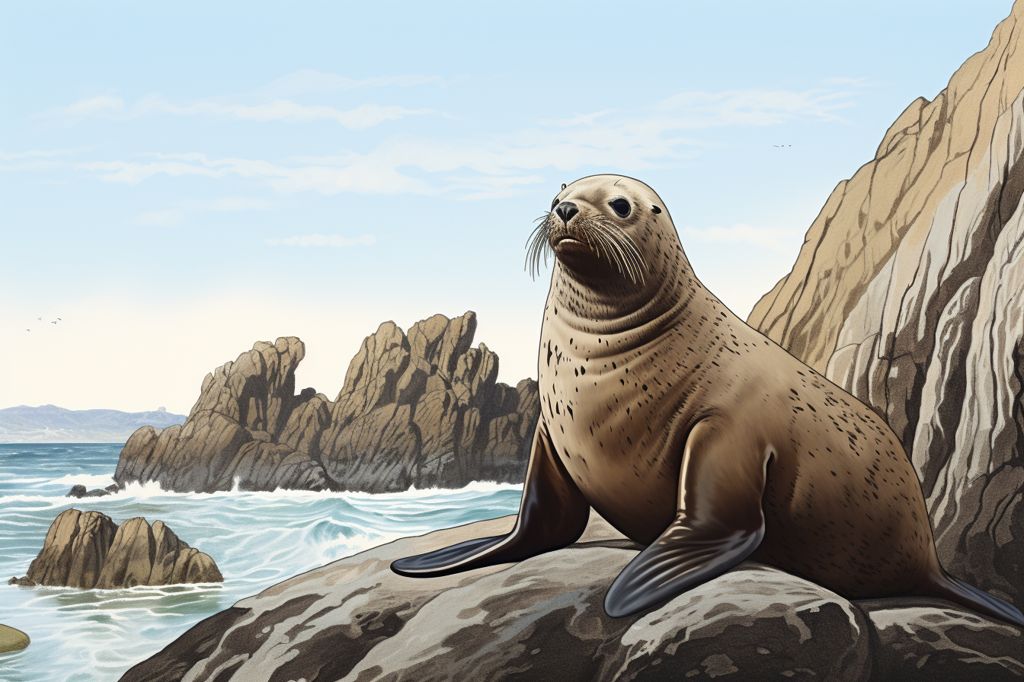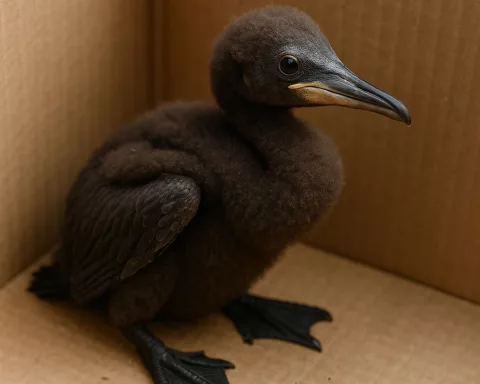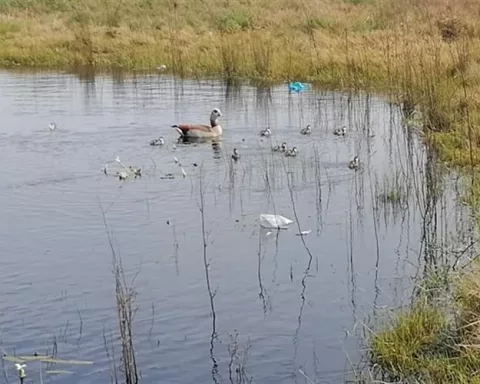In a landmark ruling for animal welfare, four men who savagely attacked a Cape fur seal have been sentenced to six years in prison, suspended for five years, with rehabilitation conditions aimed at educating and reforming the convicts. The incident highlights the need for public awareness and education on wildlife conservation and the importance of animal rights. The sentencing, which includes community service, financial contributions, and a 500-word essay on marine mammals, aims to instill compassion and responsibility towards all living beings.
A Landmark Ruling for Animal Welfare
In a remarkable triumph for animal rights and welfare, the Cape of Good Hope Society for the Prevention of Cruelty to Animals (SPCA) has celebrated the six-year sentence given to four culprits who savagely assaulted a Cape fur seal on Monwabisi Beach earlier this year. This appalling event not only emphasized the challenges faced by marine mammals but also underscored the pressing need for public awareness and education on wildlife conservation.
The horrifying episode transpired in January when several men were observed attempting to kill an adult Cape fur seal by throwing massive rocks at the cornered and petrified creature. Fortunately, a City of Cape Town Law Enforcement Officer stepped in promptly, halting further damage to the seal and apprehending the culprits until SPCA Inspector Werner Taljaard and trainee inspector Eugene Links arrived.
Despite their valiant efforts to rescue the seal, the severity of its injuries, including significant facial and skull fractures, a bloodied mouth, a crushed eye, and shattered teeth, led to the devastating decision to euthanize the animal at a 24-hour veterinary clinic. The convicted individuals faced charges of animal cruelty under the Animals Protection Act 71 of 1962 and additional charges for hunting a protected species without authorization, infringing upon the Threatened or Protected Marine Species (ToPS) Regulations of 2017, and the National Environmental Management Biodiversity Act (NEMBA) 10 of 2004.
Sentencing and Rehabilitation for the Convicts
The Khayelitsha Regional Court, in a noteworthy judgment, condemned the four men to six years in prison, suspended for five years, with numerous conditions intended to educate and reform the convicts. These stipulations include evading convictions under sections of the National Environment Management: Biodiversity Act 10 of 2004, writing and submitting a 500-word essay on marine mammals, underlining the significance of wildlife and education for conservation. The essay must be based on the book ‘Marine Mammals: A guide to the whales, dolphins and seals of Southern Africa and Southern Oceans’ by Chris and Mathilda Stuart and posted on their Facebook walls and submitted to the Clerk of Court Khayelitsha by specified deadlines.
Furthermore, the convicts must complete 18 months of community service, logging a minimum of 16 hours monthly at SPCA-designated branches, and make regular financial contributions amounting to R2000 each to the SPCA.
Cape of Good Hope SPCA’s Chief Inspector, Jaco Pieterse, expressed contentment with the verdict, stating that they would ensure the convicts comply with the court’s directive. He further stressed that the ultimate objective is to instill compassion in these individuals, a value essential for the welfare of society and its creatures.
The Broader Impact on Society and Wildlife Conservation
While presiding over the case, Magistrate D Francke did not hold back when expressing strong sentiments about the offenders, stating, “These four young men committed a grievous offense. Facing this Court, it’s evident they fail to grasp the gravity of their actions.”
This distressing case serves as a stark reminder of the pressing need for heightened awareness and education on animal rights and welfare. The unique blend of punishment and rehabilitation imposed by the court offers hope for a more extensive societal comprehension of the significance of wildlife preservation and the safeguarding of marine mammals. By incorporating education, community service, and financial contributions into the sentencing, the justice system aims to nurture a sense of responsibility and empathy for all living beings.
The Cape fur seal incident throws light on the intricate interplay between human behavior, animal rights, and the environment. As we endeavor to coexist in an increasingly interconnected world, it is crucial that the public is informed of the significance of wildlife conservation and the role each person can play in safeguarding and cherishing the diverse species that share our planet.
1. What is the landmark ruling for animal welfare?
Four men who attacked a Cape fur seal have been sentenced to six years in prison, suspended for five years, with rehabilitation conditions aimed at educating and reforming the convicts.
2. Why is this ruling important?
This incident highlights the need for public awareness and education on wildlife conservation and the importance of animal rights.
3. What were the charges against the convicted individuals?
The convicted individuals faced charges of animal cruelty, hunting a protected species without authorization, infringing upon the Threatened or Protected Marine Species (ToPS) Regulations of 2017, and the National Environmental Management Biodiversity Act (NEMBA) 10 of 2004.
4. What injuries did the Cape fur seal sustain?
The seal suffered significant facial and skull fractures, a bloodied mouth, a crushed eye, and shattered teeth, which led to the decision to euthanize the animal.
5. What are the rehabilitation conditions for the convicts?
The convicts must evade convictions under sections of the National Environment Management: Biodiversity Act 10 of 2004, write and submit a 500-word essay on marine mammals, complete 18 months of community service, and make regular financial contributions amounting to R2000 each to the SPCA.
6. What is the significance of the 500-word essay?
The essay must be based on the book ‘Marine Mammals: A guide to the whales, dolphins and seals of Southern Africa and Southern Oceans’ by Chris and Mathilda Stuart and posted on their Facebook walls and submitted to the Clerk of Court Khayelitsha by specified deadlines.
7. What is the broader impact of the ruling on society and wildlife conservation?
The unique blend of punishment and rehabilitation imposed by the court offers hope for a more extensive societal comprehension of the significance of wildlife preservation and the safeguarding of marine mammals.
8. What is the ultimate objective of the rehabilitation conditions?
The ultimate objective is to instill compassion in the convicts, a value essential for the welfare of society and its creatures.












